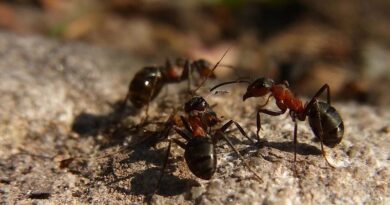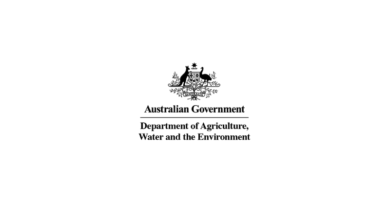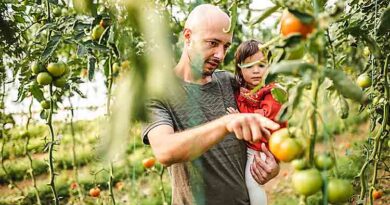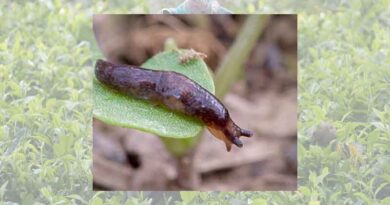MustGrow Confirms Positive Soil Health and Ecological Impact of its Plant-Based Crop Protection Approach
19 January 2021, Canada: MustGrow Biologics Corp. is pleased to report third party confirmatory studies that the active ingredient in MustGrow’s mustard plant-based technology, Allyl Isothiocyanate (“AITC”), has a positive impact on soil health, contributing to the environmental and ecological security of both our plant-based food supply and the planet. Application of natural AITC returns organic plant material to the soil through its pre-plant treatment process as a potential alternative to using synthetic chemicals.
Soil micro-organisms play an important role in soil fertility and plant health, contributing to natural soil processes including the formation of organic matter and nutrient transformation. Human activities, including chemical pesticide use, can adversely impact the soil microbial diversity and structure.
Study Highlights:
Application of AITC as a biopesticide returns organic plant material to the soil.
AITC improves the environmental and ecological security of our planet.
AITC dissipates from the soil quickly, avoiding long-term toxicity to micro-organisms.
AITC creates a healthy microbial ecological environment for soil, increasing beneficial bacteria.
Effects of AITC in Soil Fumigation
Research of AITC continues to provide positive confirmatory information for the assessment of AITC in the environmental and ecological security of our planet.
AITC fumigation, in addition to effectively controlling harmful soil-borne diseases, can positively increase the diversity and structure optimization of soil fungal communities. Of note, AITC creates a relatively healthy microbial ecological environment for soil with the emergence of a large number of beneficial bacteria. Effects of AITC on non-target micro-organisms in soil were rarely reported.
Importantly, AITC rapidly degrades in the soil, thereby avoiding long-term toxicity to micro-organisms. The short half-life of AITC in soil means AITC has a much less harmful effect on beneficial soil bacteria. AITC fumigation only temporarily reduces the diversity of soil bacteria. After AITC fumigation, some fungi related to plant disease control were even increased, which may have a synergistic effect with AITC in preventing and controlling soil-borne diseases.
Conversely, the use of synthetic chemicals in soil fumigation is well-documented to have broad biocidal activity, which harms beneficial micro-organisms, fungi and bacteria in addition to the targeted agricultural pests – negatively impacting soil fertility, plant health, and nutrient transformation.
MustGrow’s Scientific Advisor Dr. Matthew J. Morra commented, “The active ingredient, AITC, in MustGrow’s mustard plant-based technology is perfect for use in modern, more sustainable pest control strategies – a biopesticide that is effective, dissipates quickly, leaves no harmful residues, and once gone, improves the soil ecosystem.” Dr. Morra is a leading world expert on products derived from oilseeds with extensive expertise in developing mustard-based biopesticides and is professor emeritus of soil biochemistry at the University of Idaho.
Plant-Based Crop Protection
MustGrow’s remarkably safe and effective natural biopesticide is plant-based – harnessing the mustard seed’s natural defense mechanism to control diseases, pests, and weeds with an organic food-grade biopesticide. The product can be used as a pre-plant soil treatment, meaning application to the soil occurs before crops are planted. Application of MustGrow’s food-grade mustard-derived biopesticide returns organic plant material to the soil through this pre-plant treatment process as a potential alternative to using synthetic chemicals.
The interest in MustGrow’s plant-based biopesticide is increasing as farmers, consumers and investors seek ‘natural biological’ alternatives to synthetic chemical pesticides. Adverse global climate and weather events are expected to negatively impact food supply for a growing human population. Warmer temperatures are expected to increase pest infestations and with more pests there will be more damage to crops. The development of safe and effective biopesticides will be critical for future food security and environmentally sustainable agriculture.
Also Read: PMFAI’s ICSCE 2020 to be hosted on 3D Virtual Platform
Featuring Woody Harrelson, Kiss the Ground is a new film that reveals a potentially viable solution to our climate crisis. The documentary asserts that soil health, specifically regenerating the world’s soil, is the missing piece of the climate puzzle – a piece that will “completely and rapidly stabilize Earth’s climate, restore lost ecosystems and create abundant food supplies.”















